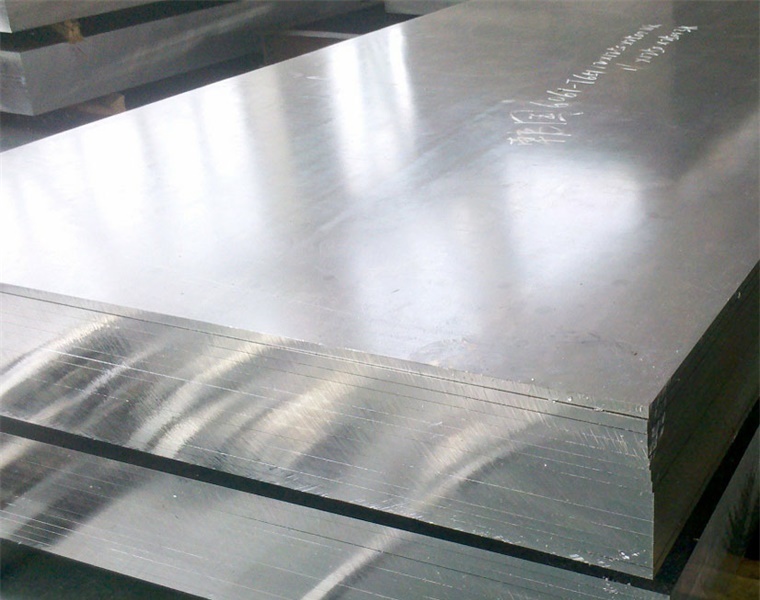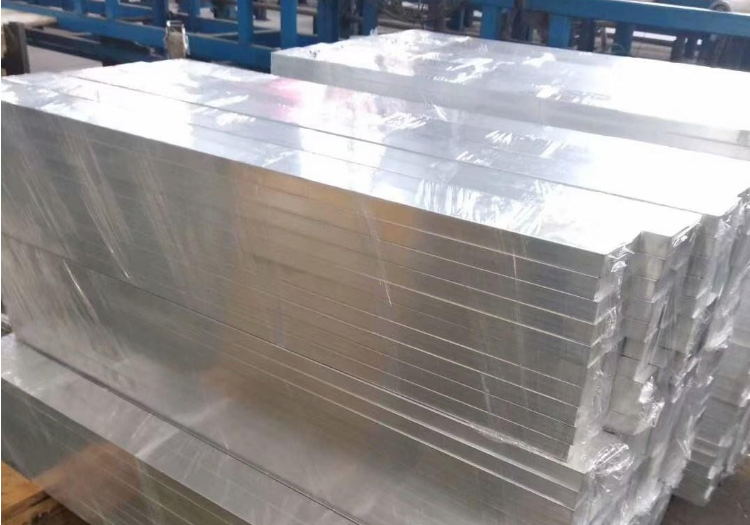
Specification
| Parameter | Description |
|---|---|
| Material | Aluminum |
| Alloy | Various, including 6061, 5052, 5083, and more |
| Thickness | 5mm (0.197 inches) |
| Size | Varies; commonly available in standard sheet sizes |
| Surface Finish | Typically mill finish (unpolished) or custom finishes available |
| Weight per Square Meter | Approximately 11.1 kg (24.5 lbs) |
| Tensile Strength | Depends on the alloy and temper |
| Corrosion Resistance | Excellent |
| Weldability | Good |
| Machinability | Varies based on alloy |
| Common Uses | Structural components, marine applications, construction, industrial machinery, and more |
| Availability | Widely available through suppliers |
| Customization Options | Available for alloy, surface finish, and size |
Characteristics of 5mm Aluminum Plate:
- Thickness: 5mm (0.197 inches), providing structural strength.
- Lightweight: Aluminum’s low density makes it lighter than many other metals.
- Corrosion Resistance: Forms a protective oxide layer, making it rust-resistant.
- Weldability: Easily joined through various welding methods.
- Machinability: Can be machined and fabricated for specific requirements.
- Durable: Offers long-lasting performance in diverse environments.
- Recyclable: Environmentally friendly and recyclable material.
Applications of 5mm Aluminum Plate:
- Structural Components: Used in construction for beams, frames, and supports.
- Marine Applications: Ideal for boat hulls, decks, and components due to corrosion resistance.
- Industrial Machinery: Supports machine structures and manufacturing equipment.
- Aerospace: Utilized in aircraft components, offering strength-to-weight advantages.
- Automotive: Found in vehicle frames, panels, and structural parts for weight reduction.
- Architectural Design: Adds a modern, aesthetic touch to buildings and interiors.
- Transportation: Used in truck trailers, railway cars, and public transportation.
- General Fabrication: Versatile for custom projects and manufacturing applications.
- Renewable Energy: Supports solar panel structures and renewable energy projects.
- Electronics: Utilized in enclosures and heat sinks for electronic devices and systems.
The 5mm Aluminum Plate’s balance of strength, lightweight nature, corrosion resistance, and versatility makes it a valuable material across a wide spectrum of industries and applications.

Alloy Grades of 5mm Aluminum Plate:
- 6061 Aluminum Plate:
- Characteristics: Excellent strength, corrosion resistance, and weldability.
- Applications: Aerospace components, marine equipment, structural parts, and general fabrication.
- 5052 Aluminum Plate:
- Characteristics: High resistance to corrosion, good formability, and weldability.
- Applications: Marine applications, vehicle panels, signage, and architectural elements.
- 5083 Aluminum Plate:
- Characteristics: Exceptional corrosion resistance, high strength, and weldability.
- Applications: Marine industry, shipbuilding, offshore structures, and armor plating.
- 3003 Aluminum Plate:
- Characteristics: Good formability, moderate strength, and corrosion resistance.
- Applications: General-purpose sheet metal work, decorative elements, and HVAC components.
- 7075 Aluminum Plate:
- Characteristics: High strength, excellent machinability, and good corrosion resistance.
- Applications: Aerospace, military equipment, and high-stress structural parts.
- 2024 Aluminum Plate:
- Characteristics: High strength-to-weight ratio and excellent fatigue resistance.
- Applications: Aircraft skins, structural components, and fasteners.
- 2014 Aluminum Plate:
- Characteristics: High strength, heat treatable, and good machinability.
- Applications: Aerospace fittings, hydraulic systems, and structural components.
- 6013 Aluminum Plate:
- Characteristics: Excellent formability and weldability, good strength.
- Applications: Automotive panels, body structures, and general fabrication.
- 7072 Aluminum Plate:
- Characteristics: High corrosion resistance, particularly in saltwater environments.
- Applications: Marine equipment, boat hulls, and seawater desalination.
- 2025 Aluminum Plate:
- Characteristics: High strength, fatigue resistance, and excellent weldability.
- Applications: Aerospace and automotive structural components, military equipment.
Each alloy grade of 5mm Aluminum Plate has specific characteristics that make it suitable for various applications. The choice of alloy depends on the requirements of the project, including strength, corrosion resistance, formability, and weldability.

How to Choose the Right 5mm Aluminum Plate
Choosing the right 5mm aluminum plate for your specific project or application involves considering several key factors to ensure that the plate meets your requirements. Here’s a step-by-step guide to help you make an informed decision:
- Identify Your Application:
- Determine the purpose of the aluminum plate. Is it for structural support, marine use, aerospace, automotive, or another application? Knowing the application’s specifics will guide your selection.
- Define Your Requirements:
- Outline the critical properties you need, such as strength, corrosion resistance, formability, and weldability. Make a list of must-have characteristics.
- Consider Alloy Grade:
- Different alloy grades offer various properties. Consult with your supplier or manufacturer to choose an alloy that matches your requirements. Common choices include 6061, 5052, 5083, and more.
- Evaluate Thickness:
- Determine the ideal thickness for your application. A 5mm aluminum plate is your choice, but other thicknesses may also be available.
- Assess Surface Finish:
- Decide whether you need a specific surface finish, such as polished or mill finish, depending on your project’s aesthetic and functional requirements.
- Budget Consideration:
- Consider your budget constraints. Some alloy grades may be more cost-effective than others, so balance your requirements with the available budget.
- Environmental Factors:
- Evaluate the environment in which the aluminum plate will operate. If it will be exposed to harsh conditions, prioritize corrosion resistance and durability.
- Customization Needs:
- Determine if you require customized sizes, shapes, or additional processing, as some suppliers offer these services.
- Supplier Reputation:
- Choose a reputable supplier or manufacturer with a track record of delivering high-quality aluminum plates and good customer support.
- Certifications and Standards:
- Ensure that the aluminum plate meets industry and safety standards, especially if it’s for aerospace, marine, or other regulated applications.
📩Email: admin@xienuoenterprise.com